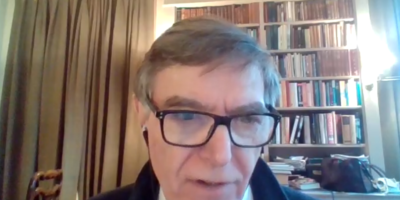Mr Dunne was commenting on the COP26 agreement, released over the weekend, which centres on ways to reduce global warming, with a commitment to return in 12 months time to COP27 in Egypt with further actions on reducing the use of coal.
The agreement itself does reference waste within the final agreement but it is included in the finance documents which accompany the agreement. These confirm that while waste is on the agenda, it is not the leading item and sits behind energy, transport, forestry, land use and agriculture.
There has been criticism in recent weeks, notably from the Chartered Institution of Wastes Management, that waste matters were not higher up the agenda.
References
Waste references come in COP26 assessments of spending on mitigation and adaptation measures as well as the use of data where more tracking of waste projects is underway and planned.

An ‘order of importance’ is suggested in the COP26 documents and it does include waste. With reference to finance, the documents says that “On the basis of the number of mitigation needs expressed across the nine national report types, energy is the lead sector for climate change mitigation actions, followed by land use and forestry, transport, agriculture, and waste and sanitation.”
The documents also reveal that waste is one of the areas where more data is needed, a message which has often been raised within the UK itself. The data is needed to help with planning of measures to combat and cope with climate change. The assessment notes: “High-quality data on private investments in sustainable agriculture, forestry and land use, water, waste, and adaptation and resilience are particularly lacking.”
On the positive side, COP26 says that new data sources have been used to track climate finance in areas that were not previously included, such as electric vehicle charging infrastructure, transport, water, waste and municipal investments.
On the basis of the number of mitigation needs expressed across the nine national report types, energy is the lead sector for climate change mitigation actions, followed by land use and forestry, transport, agriculture, and waste and sanitation.
Audit Committee

Environmental Audit Committee chairman Philip Dunne MP’s full thoughts on the COP26 Agreement are: “The agreement reached at COP26 has demonstrated a powerful global consensus to up the ante against climate change. We now need to see nations implement actions to match pledges to reduce use of coal, to provide greater support for countries on the front line of the climate crisis, and to keep 1.5C within reach. I am particularly pleased that nature has been at the forefront of the COP26 talks, as we cannot tackle climate change without addressing nature depletion.
“But we must not be complacent. The time for warm words and sentiment is over: we must make sure the Glasgow Climate Pact leads to lasting change. Every country must now review its domestic policies to keep emissions down and embed environmental improvement. From how we generate energy to decarbonising transport, our consumption habits to heating and insulating our homes: the opportunities are endless to embrace innovation and deliver a prosperous decarbonised economy. The Glasgow Pact may be seen as a tipping point for governments around the globe to get real on the need to tackle climate change.
“The Environmental Audit Committee will be poring over details of the pact in coming weeks and months. We will continue to hold the Government to account to ensure it meets the many commitments made in Glasgow over the last fortnight.”
Encouraging
Speaking following the close of the event in Glasgow, CIWM President, Dr Adam Read, said: “Whilst unfortunately we cannot say that COP26 has secured 1.5C, unanimous agreement on revisiting emissions cutting plans, increasing financial support for developing countries and, for the first time, phasing down the unabated use of coal are positive steps that should give us some hope.
“Whilst it was disappointing not to see waste and resources better represented on the main agenda, it was hugely encouraging to witness the sector proactively discussing practical action it can take to accelerate the development of the circular economy and battle climate change at a host of ‘fringe’ events”.









Subscribe for free